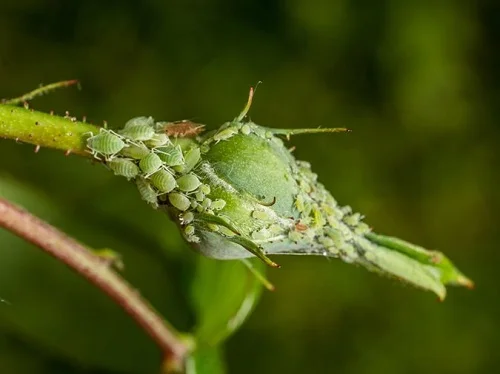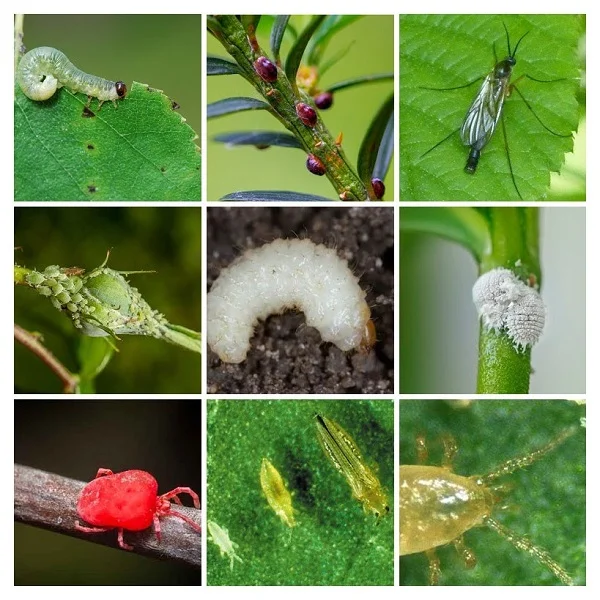How to Get Rid of Aphids in Houseplants | Aphids Control Indoors
Some links in this post may be affiliate links

Aphids Identification
Aphids are tiny, soft-bodied insects also commonly called Plant Lice.
They are sap-sucking insects which are usually green but may be black, grey or orange.
All plants with soft tissues can be attacked by aphids; the shoot tips and flower buds are the most often attacked.
This weakens the plant, causes stunted growth, distorted growth and leaf curl.
They also deposit a sticky honeydew residue on plants which attracts ants and may be fertile ground for disease infestation.
Aphids also transmit viral diseases from one plant to another and they multiply very fast and can spread very fast from plant to plant.
Be on the look out for these pests so as to control them immediately to prevent damage to your houseplants.
Aphids Control in Houseplants
1.Remove heavily infested parts of the plant and destroy to prevent further spread.
2.Take the houseplant outside or to a sink and wash the aphids off with a high pressure stream of water.
If the houseplant has delicate foliage, turn the plant upside down and dip the foliage in a bucket of water to wash off the pests. Repeat as many times as is necessary.
3.A light infestation can be dealt with by by wiping the pests off with cotton buds or a soft cloth dabbed in rubbing alcohol followed by thorough spraying of the plant with a solution of 4 parts water and 1 part rubbing alcohol. Repeat the spraying after 7 days.
It can also be treated with an insecticidal soap or neem oil both of which are safe to use indoors.
4.For a heavy infestation of Aphids, spray the plant with a contact Pyrethrin-based insecticide as per the manufacturer's recommendations.
You liked it? Share on social media.
Related Content
Amazon Associates Disclosure
Homeplantsguide.com is a participant in the Amazon Services LLC Associates Program, an affiliate advertising program designed to provide a means for sites to earn advertising fees by advertising and linking to amazon.com.
